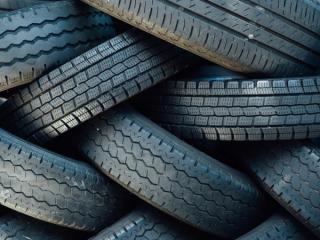
Nature can't wait: ISSB is moving to mainstream new disclosures
by Emily Willoughby, James Balik-Meacher
View post

Reform to the waste exemption regime has been in progress for many years. However, numerous delays have left businesses within the industry unclear on what changes are proposed and how they will be affected. This article gives a background to the proposed reforms, explains the delays, and provides an overview of the upcoming changes.It also gives an insight into when industry can expect the changes to come into effect.
Waste exemptions refer to specific waste-related activities that are exempt from requiring an environmental permit, provided they meet certain conditions. Since the introduction of the system of waste management licencing under the Environmental Protection Act 1990, certain low-risk waste activities have been exempt from needing a license to reduce regulatory burdens while ensuring environmental protection. However, the exemptions introduced under the EPA 1990 were basic and not consistently enforced or registered, and have been refined over time as follows:
The Environmental Permitting (England and Wales) Regulations (EPR) 2007 introduced a new and unified framework wherein waste exemptions were still recognised but began to be structured more clearly, with tighter rules and a simplified registration process.
The EPR (England and Wales) 2010[1] introduced reforms to the waste exemption system whereby over 200 exemptions were replaced with 59 exemptions categorised as:
The exemptions and their conditions are written into the legislation.
The EPR 2010 set of exemptions had clear limits on waste types, storage durations and quantities, and well-defined conditions to be met for the exemption to apply. Registration with the Environment Agency (EA) and Natural Resources Wales (NRW) became mandatory in most cases, with the majority being free to obtain.
Exemptions are widely misused to avoid permitting processes and costs.
A 2018 call for evidence and consultation[2] published by The Department for Environment, Food and Rural Affairs (Defra) and the Welsh Government reviewed exemptions suspected of being used to hide illegal waste activities and the possible removal of high-risk exemptions.
The consultation outcome[3] published in October 2023 proposed to remove three exemptions that were at highest risk of misuse (U16, T8 and T9), amend seven exemptions to tighten conditions (U1, T4, T6, T12, D7, S1 and S2), ban exemptions to be used on or adjacent to permitted sites, limit the number of exemptions per site, mandate electronic record keeping, and update waste codes used in exemption conditions. The conditions for each of the exemptions were also published in associated annexes.[4]It was proposed that the EPR would be amended to implement these changes in 2023.
2023 passed with no draft legislation presented before parliament. In July 2025, Defra published a White Paper[5] that confirmed its intention to reform the exemption system as outlined within the consultation outcome published in October 2023.[3]
Then, in April 2025, Defra launched a separate consultation on ‘Exemptions Reform to the EPR’.[6] The consultation sought views on proposals to reform the process for setting and amending environmental permitting exemptions. As discussed above, currently, exempt facilities, and the conditions that apply to them, are specified in the Regulations meaning that changes can only be made via a legislative amendment. The 2025 consultation proposed to remove the wording of the exemptions from the legislation so that, going forwards, changes to exemptions can be made via a legislative amendment OR via lead regulator decision, in a similar manner to the current system of standard rules environmental permits. This will make amendments to exemptions significantly simpler in the future. The UK government’s response to this consultation has not yet been published therefore no indicative timescale for implementation is available.
Until the amendments to the EPR have been made, the reforms to the exemption regime as outlined within the White Paper can’t be implemented.
In summary, the difficulties associated with amending legislation has led to delays in Defra’s and Welsh Government’s efforts to implement changes to the exemption system. This has led them to change their approach to allow making changes to exemptions in the future easier to do.
So, how much longer is it going to take before the industry can expect reform?
Defra published the White Paper[5] outlining the reforms to the waste exemptions system on 15th July 2025. Following this there is a legislative process that must be completed before any changes to the regulations can be made as shown below.

The timescale for changes to regulations can vary hugely from a few months to a few years depending on the perceived need for the change and level of agreement within the parliamentary chambers. As an example, the 2023 amendments to the EPR took four months to go through the legislative path as detailed above. Following Royal Assent, there is a period of time before the commencement of the Act. For the 2023 changes to the EPR this was 11 months, bringing the total timescale to 15 months. Defra have outlined transition periods for each exemption in the White Paper. It is currently not clear whether these transition periods will be in addition to the time between Royal Assent and the amended regulations coming into force.
Additionally, responses to the consultation on ‘Exemptions reform to the EPR’[6] are currently being analysed by Defra therefore estimating a timescale is difficult.
Based on previous changes to the EPR as outlined above, SLR would expect it to be at least 18 months to two years before the amended regulations come into force (this includes the transition periods outlined in the White Paper). SLR will publish an update to this article when more information becomes available.
The proposed changes to waste exemptions follow increased action in 2025 from the Environment Agency in England on Standard Rules Environmental Permits and the introduction of waste exemption charges in England. It is important to note that upcoming waste exemption reforms are coming for both England and Wales.
The date from which the waste exemption changes are to take affect is to be confirmed as discussed above. However, it is recommended for those who use waste exemptions to familiarise themselves with the upcoming changes as it can take a number of years to collect data, prepare an application, and it be determined. The transitional arrangements proposed are unlikely to be long enough for applicants to submit an application, if they wait until the legislation comes into force and find out that a bespoke environmental permit is required.
If you operate or are planning to operate under a waste exemption, it is important to check whether your activities will meet one of the amended list of waste exemptions and their conditions when they come into force. The proposed changes to waste exemptions will mean that some activities previously covered by a waste exemption will require an environmental permit to continue.
Three waste exemptions are proposed to be removed in their entirety:
The conditions of seven waste exemptions are proposed to be amended:
For removed waste exemptions, operators will need to check whether another waste exemption meets their needs or apply for an environmental permit.
For amended waste exemptions, there are some notable changes between the current waste exemptions and their proposed revised conditions. SLR is encouraging our clients to assess their ability to comply with the new waste exemptions carefully to ensure that the new conditions meet the requirement for their activities.
Notable updates include changes to:
As mentioned above, the timescale for waste exemption reform has not been confirmed, however SLR would recommend considering now whether your current or planned activities will be covered by a waste exemption in future.
If, for example, you currently benefit from the additional treatments and waste types offered by an exemption at your permitted site, and you intend to continue to do so, then you will need to vary your environmental permit to include those activities within your permit.
If you have any doubt on whether your activities can meet the conditions of a waste exemption, please contact us. SLR can assist with: